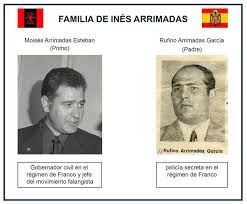s the Catalan independence crisis enters its fourth
month in December, the intended outcome of an independent Catalonia
remains elusive.
But the push for independence has had an unintended
consequence; it has invigorated Spain's far-right movements unlike any
event since the country's transition to democracy in the 1970s,
according to Jordi Borras, a Catalan photojournalist and author who
monitors the Spanish far-right.
In the years before the crisis, the far-right's
impact has been negligible both on the Spanish streets and in
parliament, even as similar movements flourished in France, the
Netherlands, Austria, Hungary and elsewhere, Cas Mudde, a professor and
scholar at the University of Georgia who specialises in European
far-right politics, told Al Jazeera.
Scholars say it is a combination of the mainstream conservative
ruling People's Party "capturing the nationalist vote" and "regionalist
division" between Spain's minority regions that has put the far-right in
the spotlight, Mudde commented.
"Their importance is overplayed in the media. They are much more visible than relevant," Mudde said.
But the political turmoil that has resulted from Catalonia's
declaration of independence is bringing these groups, of which there are
dozens, together. Borras told Al Jazeera that things have "changed
quickly" in Spain, perhaps faster than many observers can track.
Borras explained that the Spanish far-right was previously a
"constellation" of ultra-nationalist groups. Some are Neo-Nazis, some
are "Falangists" or the remnants of the foremost paramilitary group
under the dictatorship of Francisco Franco, who ruled Spain as a
right-wing conservative, Catholic nation from 1939 until 1975. Others
exist in their own groups.
Though these groups have a history of in-fighting, Catalan independence has given the far-right a reason to unite, Borras said.
Increased attacks
Catalonia's police force, the Mossos d'Esquadra, finished
investigating four incidents of politically-motivated violence, spanning
from September 22 to October 27, according to a statement delivered to
Al Jazeera.
All of these attacks are believed to have been committed by the far-right.
The perpetrators of one attack, which took place on October 8, were
identified by photographs wherein the suspects were giving "Hitler
salutes". The Mossos' statement says these attackers were "Spanish
nationalists".
After Catalonia held its disputed independence referendum on October
1, Spanish courts declared the vote illegal and ordered the national
police and the Civil Guard, a military unit tasked with domestic
policing, to stop the referendum while "respecting co-existence".
Spanish law enforcement was filmed executing a violent crackdown on
voters that rights groups called "excessive". The violence bolstered
Catalonia's resolve for independence.
After a month of political back-and-forth where Catalan President
Carles Puigdemont called for dialogue and Spanish Prime Minister Mariano
Rajoy of the centre-right People's Party reneged the offer, the Catalan
parliament voted for independence On October 27.
Spain responded by enacting Article 155, a never-before-used
provision of the constitution that allows the central government to
dismiss the Catalan government and directly administer the breakaway
region.
Puigdemont and four of his former ministers fled to Belgium, while
nearly a dozen pro-independence lawmakers and organisers, including
former Catalan Vice President Oriol Junqueras, were imprisoned on
charges of rebellion and sedition.
While far-right violence is on the rise, the attacks are encouraging a
response from the activist community in Catalonia, Borras noted.
It was visible at one protest on the evening of Monday, October 30.
Roughly 500 anti-fascist protesters dressed in black with covered faces
stood directly across from a smaller group of far-right activists.
Unlike recent protests in Barcelona, the Antifa group did not take to the streets for the sake of nationalism, but for safety.
Holding flags of workers' syndicates, a trademark of the anarchist,
anti-fascists forces that fought in Spain's Civil War, the protesters
made it clear to both the police and far-right protesters that these
attacks would not go unanswered.
Chanting "the streets will always be ours," a slogan popular with
pro-independence demonstrators, they ran past police barricades to
confront members of the "Last Bastion," an ultra-nationalist group
active in Catalonia.
A chase over several blocks ended with the Catalan police breaking up
an altercation between Last Bastion members and an anti-fascist
protester.
The Mossos' statement concluded by saying a further eight cases of political violence were being investigated.
'Identitarian' movement
"The Catalan situation makes it so that we are more organised [to
prevent] Catalan independence from being achieved," a spokesperson of
Spain's Generation Identity (GI), a movement which doesn't consider
itself to be a right-wing movement, but a "movement of identity" that
respects "the Christian history of Europe", told Al Jazeera in an email.
Spain's GI was founded in Barcelona in 2016. It started as a small
group of older people, the spokesperson, who did not give their name,
said. The group is growing, thanks to Catalonia's secessionist bid, and
new members are in their late teens early 20s.
Spain's GI said Franco's dictatorial legacy has been an obstacle for
the Spanish far-right. Though there is no official number, Franco's
government killed an estimated 50,000 to 125,000 from 1939 to 1950.
Franco also attempted to homogenise Spain by outlawing minority languages and public displays of minority cultures.
Catalonia, along with other regions with minority cultures, such as
Galicia and the Basque country, were most affected by these policies.
Spain's GI belongs to a network of ethno-nationalist groups that are
gaining prominence throughout Europe and the US under the banner of
white identity.
These groups wish to preserve the cultural purity of white-majority regions and are sometimes considered Islamophobic.
The first goal of Spain's GI group is "is shining a light on the real
problems of massive, uncontrolled immigration" and "the dangers of
Islamic invasion", the spokesperson said.
This "massive" immigration is putting a strain on the Spanish
economy, the GI spokesperson said. They want "national preference –
social security and job placement for Spaniards first," to be Spanish
policy.
According to Eurostat, the statistical office of the European Union,
Spain was 13th in Europe for refugee acceptance. That year, Spain
accepted 14,780 refugees, as compared with Germany's 476,510 or
Hungary's 177,135 asylum-seekers.
Borras, the Catalan author and researcher, while it is true they want fewer immigrants, it is not what has united them.
Fear of an independent Catalonia has given the far-right – and
mainstream right – a "greater good" for which to fight, he concluded.
Al Jazeera






























































